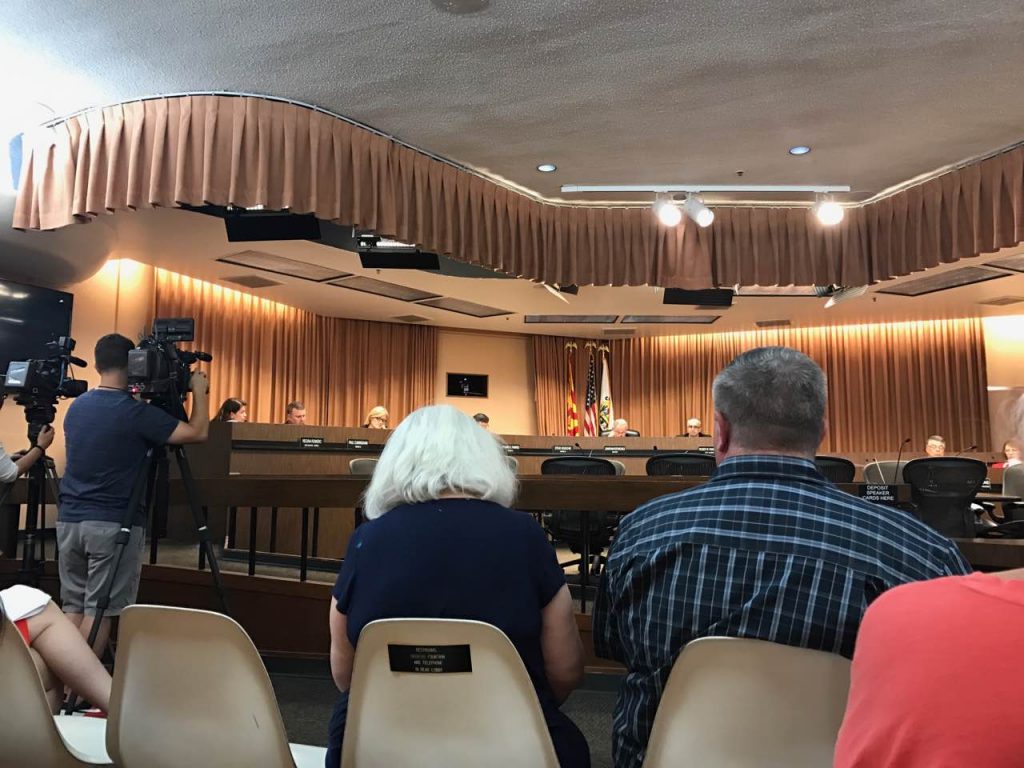
On June 6th, I had the pleasure of attending Tucson city council meeting with my colleagues from Scholarship A-Z. At the meeting, the city of Tucson announced that it will not endorse the construction of a border wall. People from different backgrounds expressed their opposition to building a border wall. Native American representative emphasized on the sacredness of their land, consisted of a part in the U.S. and a part in Mexico. Environmental activists claimed that a wall would disrupt the already damaged ecosystem. Residents in border town Nogales mentioned that a wall would affect economies on both sides. On the other hand, some people voiced their support to the wall. One person claimed that he goes down to Mexico and comes back with no troubles. Another group, Tucson Hispanic Chamber of Commerce, argued that a statement in the document forbids business involvement in financing and constructing the wall violates business’ rights. Although it is powerful to witness the unity of opposition, arguments from both sides open up a debate on privilege, rights and rhetoric.
People tend not to acknowledge the privilege they have. In fact, not everyone has the privilege to own a passport and get a visa. It can take up to forty years for a non-U.S. citizen to attain residence according to the system right now. Moreover, it is also challenging to acknowledge that at least some privileges of ours, not our efforts, get us where we are today. Lots of times we feel powerless because of the privileges that we do not have, rather than treasuring and leveraging those we do have. That I am a minority female who is attending school in a foreign country renders me more susceptible to certain micro-aggressions and I feel undervalued sometimes. Meanwhile, I become blind to the privilege I have–education and being multilingual–and forget to take advantage of them. Privilege is not supposed to be put in a corner. It is to be shared and empower other people.
The definition of rights and use of rhetoric is also worth exploring. The Hispanic Chamber of Commerce requested a rephrasing on the statement which they believe violates their rights. On the surface, it seems that they are fighting for the rights they deserve, while in reality it is hard to identify their intention behind supporting the wall. The strategy and rhetoric people use to lobby in the political arena blurs the line between justice and so-called rights. My experience at the meeting inspires me to reflect and further explore the communication strategies groups with different beliefs utilize, and how activists groups advocate for human rights through economic arguments.
